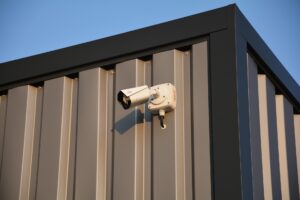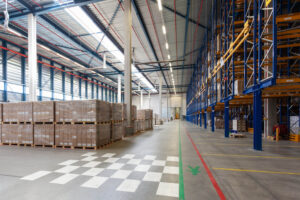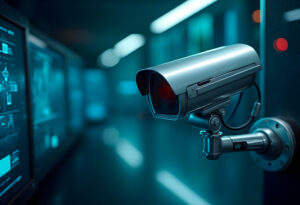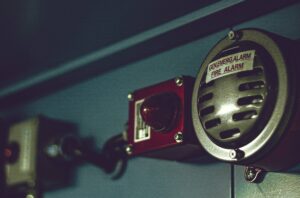Let’s be honest, worrying about the safety of your business premises is probably not why you got into business. But in today’s world, having a solid security system isn’t just a good idea because it’s pretty much essential for satisfaction and protecting what you’ve worked hard to build. That constant background thought, “is my business secure when I’m not there?” can be a real drain. This is a common concern for many business owners across the UK.
TL;DR: A strong commercial security system typically involves a mix of CCTV, an alarm system (often with thorough monitoring), access controls, and various sensor types like motion detector units. Key considerations include your specific risks, budget, whether you need wireless or hard-wired components, and the level of monitoring. The UK market for these services is substantial, valued at £1.8 billion in 2025, showing that many businesses are taking this seriously.
Key Takeaways:
- A commercial security system is vital for protecting assets, staff, and ensuring business continuity.
- Core components often include CCTV cameras, burglar alarms, access control, and motion sensors.
- Choosing the right system involves assessing your specific business risks and needs, meaning there’s no one-size-fits-all security solution.
- Competent monitoring services can offer rapid response when an alarm is triggered.
- The UK security system services industry is growing, driven by rising crime rates and increased awareness, with nearly 3,000 businesses operating in this sector.
- Regular maintenance and understanding your alarm system are important for effectiveness and minimising false alarms.
That sudden blare of an alarm when there’s no actual intruder, or the nagging worry about what’s happening at your premises after hours, can be more than just an annoyance. It can affect your focus and, in the case of repeated false alarms, even your reputation or incur call-out charges. The good news is that a well-chosen and properly managed alarm security system can significantly reduce these worries. This guide will walk you through what makes up a modern security system installed for commercial use, what to look for, and how it can help you protect your property and give you that much-needed confidence.
What is a Commercial Security System and Why is it So Important?
At its heart, a commercial security system is a network of interconnected electronic devices designed to detect and deter unauthorised access and other security threats to your business premises. Think of it as your round-the-clock digital watchman. Unlike a basic home security system, which might focus on a smaller area, commercial systems are often more complex, catering to larger spaces, higher value assets, and specific business risks. They are a critical part of your overall fire protection and general safety strategy, alongside things like smoke alarms.
The need for such systems is clear. Rising crime rates are a key factor driving demand for security system services in the UK. As incidents of theft and burglary increase, more businesses are investing in advanced security solutions to protect your property. It’s not just about theft, it’s about vandalism, staff safety, and sometimes even gathering evidence if an incident occurs. Public concern over crime has also boosted demand, with authorities sometimes outsourcing security to specialist contractors. For a business, a breach can mean lost stock, damaged equipment, operational downtime, and a hit to customer confidence. An effective alarm system acts as a strong deterrent to any potential burglar.
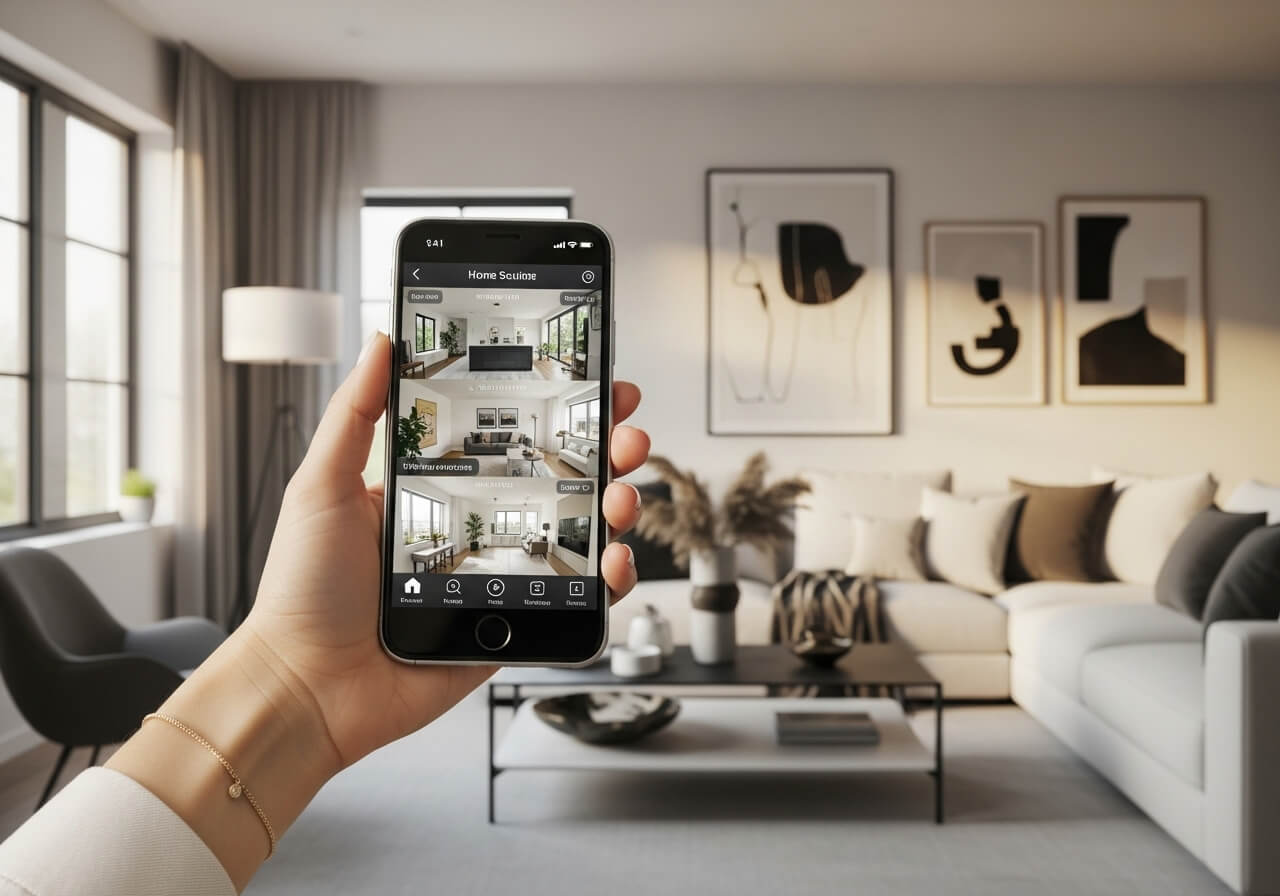
The Bits and Bobs: Core Components of a Modern Security System
A complete commercial security system isn’t usually just one single gadget. It’s typically a system that includes several key components working together. Understanding these can help you figure out everything you need to protect your property.
1. Control Panel or Base Station
This is the brain of your entire alarm system. It’s where all the different sensor units report back to, and it’s what communicates with you or a monitoring centre if an alarm is triggered. Modern systems often have a user-friendly interface, perhaps even an LCD, and can be armed or disarmed with codes, key fobs, or even via a smartphone app. The base station is central to how you control your security.
2. Sensors and Detectors
These are the eyes and ears of your system, crucial for effective fire detection and intrusion alerts. There’s a whole range of security devices available:
- Motion Detector / Motion Sensor: These detect movement within a protected area. You can often adjust the motion sensitivity to reduce false alarms from pets or minor environmental changes. They are a staple in most alarm pack offerings.
- Door and Window Sensors: These usually come in two parts. One part is fitted to the door or window, and the other to the frame. If the door or window is opened when the alarm system is armed, the contact is broken, and the alarm triggers.
- Glass Break Detectors: These listen for the specific sound frequency of breaking glass, offering an extra layer of protection for vulnerable windows.
- Heat Detector: While often part of fire safety, some security setups integrate these, especially in areas where a smoke detector might cause false alarms.
3. Security Cameras (CCTV)
CCTV systems (Closed-Circuit Television) are a hugely popular component. A good security camera system provides visual evidence and can act as a powerful deterrent. Modern security camera options include:
- Indoor and Outdoor Cameras: Designed to withstand the elements, an outdoor camera or outdoor security camera needs to be strong. Many offer HD security footage.
- Night Vision: Essential for clear footage in low-light conditions or complete darkness.
- Wireless or Hard-wired: Wireless home security systems principles can apply here, with wireless cameras offering easier installation, while hard-wired systems might provide a more stable connection, especially for larger premises.
- Smart Features: Many security cams now offer features like motion-triggered recording, remote viewing via an app (e.g., “via the Ring app” is a common consumer example, but similar functionality exists for commercial smart systems), and even two-way audio. A video doorbell, while more common in home security, can have applications for small business entrances, allowing for two-way communication.
Monitoring security systems, including CCTV and alarm monitoring, is actually the largest segment of the UK security system services market, as businesses look for real-time protection.
4. Alarms and Sirens
If a sensor is triggered, you need something to make a noise! An audible siren (or sounder) is designed to alert anyone nearby and scare off intruders. An outdoor siren can be particularly effective. Some systems might also include a silent alarm feature that sends a notification directly to you or a monitoring centre without an audible siren on-site, perhaps to avoid alerting an intruder that they’ve been detected before police response or private security can arrive.
5. Access Control Systems
For many businesses, controlling who can enter specific areas and when is vital. Electronic access controls are very popular. This can range from simple keypad entry systems to card readers or even biometric scanners. This adds an extra layer of security beyond just detecting intruders; it proactively manages access to your entire home or business premises, including features like a smart door lock.
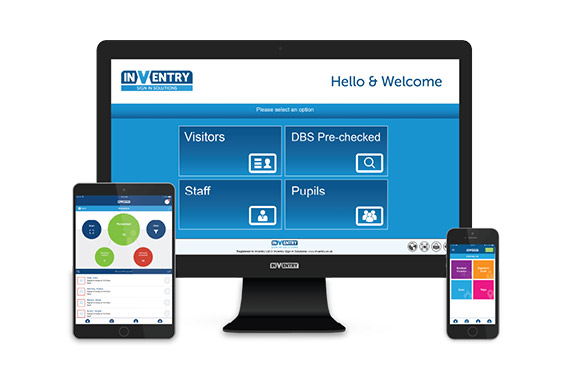
Types of Security Systems: What’s on Offer?
When you start to look into getting a security system installed, you’ll find there are a few main categories to consider for your alarm security.
Monitored vs. Unmonitored Systems
- Monitored Home Security System (and Commercial Equivalent): With a monitored system, when an alarm triggers, a signal is sent to a dedicated alarm receiving centre (ARC). Trained staff at the ARC will then verify the alarm (often by trying to contact you or keyholders) and, if necessary, dispatch the police, fire and rescue service, or a private security patrol. This monitoring often comes with a monthly monitoring plan fee but provides a higher level of security and faster response. Some services offer “assisted monitoring” as a step up from self-monitoring.
- Unmonitored (Self-Monitored) Systems: If this alarm is triggered, it will typically sound a local siren and send a notification to your smartphone or designated contacts. You are then responsible for assessing the situation and contacting the authorities if needed. While cheaper, the onus is entirely on you to respond.
DIY vs. Professional Installation
- DIY Home Security Systems (Adapted for Small Business): Some simpler wireless home security systems, like those from SimpliSafe or Ring, are designed for easy self-installation, often set up in minutes. You can get an alarm pack that includes everything you need to get started. While marketed for home security, a small, less complex business might find a DIY home security system adequate, especially a wireless burglar alarm. Many offer a free trial of Ring home monitoring services, for example.
- Professional Installation: For most commercial premises, especially larger or higher-risk ones, professional installation by security experts is recommended. They can assess your specific needs, ensure optimal placement of every sensor and security camera, and integrate all components of the alarm security system correctly. This is particularly important for hard-wired systems or complex CCTV systems.
Wireless vs. Hard-Wired Systems
- Wireless Home Security (and Commercial): Wireless systems, which often form the basis of smart home security systems, use radio frequencies to communicate between the sensor units, cameras, and the base station. They are generally easier and quicker to install with less disruption. Many wireless home security systems use wireless technology extensively.
- Hard-Wired Systems: These systems have physical wires connecting all components to the control panel and usually to the main power supply (often with a backup battery). While installation can be more involved, they are sometimes considered tougher and less susceptible to interference, making them a common choice for larger commercial alarm system setups.
Many modern setups are actually hybrid, using a mix of wired and wireless components to get the best of both worlds. Smart alarm and smart security features are also becoming increasingly common, allowing for remote control and integration with other home automation or business management systems.
Choosing the Right Security System for Your UK Business
With so many options, from a basic burglar alarm to whole home (or whole business) security solution, how do you choose? It’s not about just picking the most expensive alarm security system. It’s about finding what’s right for your specific circumstances.
Think about:
- Your Business Type and Premises: A small shop will have different needs to a large warehouse or an office block. Consider the size of your property, entry points, and valuable areas.
- Risk Assessment: What are your main security concerns? Is it opportunistic theft, targeted burglary, staff safety, or vandalism? This will help you prioritise which components are most important.
- Budget: Systems can range from a few hundred pounds for a basic DIY home security system to many thousands for a custom-designed commercial installation with ongoing monitoring fees.
- Scalability: Will your business grow? Choose a security system that can be expanded later if needed, allowing you to add an extra layer of protection or cover new areas.
- Ease of Use: The system via which you control your security should be straightforward for you and your staff to operate.
It’s often a good idea to get quotes from a few reputable security experts or companies. They can perform a site survey and recommend a home security system that includes, or a commercial system with, everything you need to protect your property effectively.
The Growing UK Security Market: A Sign of the Times
It’s no surprise that the UK Security System Services industry is a significant one. It’s valued at a hefty £1.8 billion in 2025, having grown at a compound annual rate of 4.1% between 2020 and 2025. This isn’t just a fleeting trend because it reflects a genuine need. There are over 2,900 businesses, 2,909 to be exact, operating in this sector in the UK in 2025, showing steady growth and a competitive market. This means plenty of choice for business owners, but also the importance of choosing a reputable provider.
What’s driving this? As mentioned, rising crime rates are a major factor prompting businesses to invest. The industry is expected to keep growing too, supported by ongoing construction, new commercial developments, and even the government’s pledge to build 1.5 million new homes by 2029, each potentially needing some form of security system installed. When you look at the big players, companies like ADT Fire & Security plc (with a projected revenue of £284.6 million in 2025), MITIE Security Ltd, and Chubb Fire & Security Ltd are leading the way, but many excellent local security experts also provide vital services.
Benefits of Investing in a Competent Security System
Beyond the obvious benefit of deterring criminals, a good security system offers more:
- Reduced Losses: Preventing theft and vandalism directly saves you money.
- Lower Insurance Premiums: Many insurers offer discounts for businesses with professionally installed and monitored alarm security.
- Staff Safety: Knowing the premises are protected can make your employees feel safer.
- Remote Monitoring: Many smart systems allow you to check in on your business via your phone, wherever you are.
- Evidence Collection: High-quality CCTV footage can be invaluable if an incident does occur and a police response is needed.
- Deterrent: Visible security camera units and alarm boxes can make potential intruders think twice.
Ultimately, a good security system helps ensure your home is protected (if you run a home business) or your commercial property is protected, allowing you to focus on running your business.
Frequently Asked Questions (FAQ)
How much does a commercial security system cost?
This varies massively. A basic DIY home security system adapted for a very small business might start from a few hundred pounds. However, for most commercial premises requiring professional installation, multiple security camera units, various sensor types, access control, and potentially a monitored system, costs can run into several thousands. Ongoing monitoring services will also have a monthly fee. It’s best to get tailored quotes.
Is professional monitoring worth the extra cost?
For many businesses, yes. While self-monitoring via smartphone notification is an option, professional monitoring by an alarm receiving centre means there’s always someone ready to react if your alarm is triggered, even if you’re unavailable. This can lead to a faster dispatch of emergency services. Some insurers may also require it for commercial policies. For example, some systems like SimpliSafe® offer professional monitoring, and it’s worth noting the difference in response times often cited between verified alarms and “non-verified SimpliSafe® alarms” (or similar unverified alarms from other providers) by emergency services.
Can I use a smart home security system for my small business?
Potentially, yes, for very small or low-risk businesses. Many smart home security systems offer features like wireless setup, smartphone control, video doorbell cameras, and basic motion detector units. Brands like Ring (which might offer a “30-day free trial of Ring” services for its Ring Alarm) or SimpliSafe (with its “SimpliSafe home security system”) are well-known in the consumer market. However, they might lack the robustness, scalability, or specific commercial-grade features (like advanced access control or integration with larger CCTV systems) that a dedicated commercial security solution provides. Always check if the terms allow for commercial use and if your insurer accepts such a system.
Conclusion
Choosing and installing the right security system is a significant decision for any UK business owner. It’s about more than just technology; it’s about creating a secure environment so you can operate with confidence. From understanding the different types of alarm and sensor technology to deciding on professional monitoring, taking a considered approach will pay dividends in protecting your assets and giving you genuine peace of mind. With the UK market for security services clearly growing, there’s plenty of expertise available to help you find a security solution that fits your business perfectly. Whether it’s a simple burglar alarm for a small shop or a comprehensive CCTV system with access control for a larger enterprise, ensuring your property is protected is an investment that’s hard to put a price on.
Sources
ibisworld.com/united-kingdom/industry/security-system-services/4240/
ibisworld.com/united-kingdom/market-size/security-system-services/4240/
researchandmarkets.com/report/united-kingdom-security-system-market
